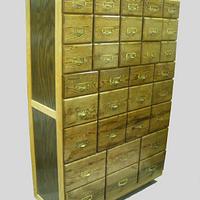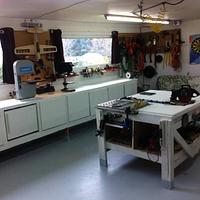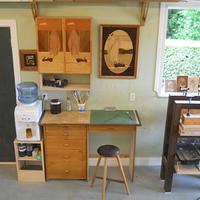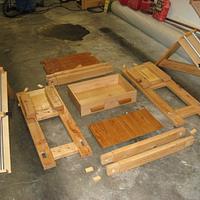
MsDebbieP
in almost 12 years
WoodworkingWeb Theme: The Workshop
The workshop — the home away from home, or in the home, or “is” the home. Perhaps, at times, we take this space for granted but just think about all the magic that happens in the workshop — the creativity, the learning, the focus, the release of emotions, the caring, and, hopefully, the relaxing.
Some workshops are small, some are huge; some are in basements, garages, and even attics. Some are in living rooms and kitchens and some are portable, going to “on site” locations or, for travellers, into hotel rooms. Some workshop spaces are pristine – so clean that you could eat off the floors – and others, well, are venues for the creative mind (let’s just leave it at that).
Here are some creations TAGGED as WORKSHOP


And here are some creations TAGGED AS SHOP


Your turn:
Share your WORKSHOP tips, strategies and stories here in the comments section!
-——————————————————————————————————————————————————————————————-
REMEMBER TO TAG YOUR CREATIONS … so that they are shown in the THEME galleries!

-——————————————————————————————————————————————————————————————-
JAGO - just a grandma’s opinion
2 Comments
I must admit I have the ‘creative’ shop. After 25 years of sharing space wherever I could find it I finally got dedicated space (with its own bathroom!) with my last home purchase. For the past 2 years I’ve been adding equipment I always needed. I’ve now filled a 2 1/2 car garage. Retirement space will have to be a 24 × 60 or better.
Mike C.
- Since most folks are working in garages or smaller places, the best tip is to have your machine tools, and even storage on wheels. My shop is a dedicated space, but it’s still only slightly larger than 1/2 of a two car garage at 228 sq. ft. I have all the normal machine tools including a router table/cabinet and a couple of big benches in there. It would be impossible to clean if I couldn’t wheel stuff around. It also makes it possible for me to reconfigure to suit long or odd shaped workpieces.
- Set your tools up so that the work surface of one tool can be an outfeed table for another.
- Make sure your machines allow for in/out feed of long pieces as much as possible.
- Keep in mind that your shop will probably have to be reconfigured from time to time when the type of work you do changes and/or if you add additional tools. This happens a lot as your skill set increases and you want to do more challenging types of work.
- Good lighting is well worth spending some extra money on, especially for us older folks.
- It’s great to have your hand tools hung on the wall or on a wall mounted tool cabinet near where you use them. Easy to find and easy to put away again instead of cluttered drawers.
- Drawers with dividers for the tools and accessories you can’t hang on the wall
- an insulated workshop is best if is practical and within your budget. It will allow you to work year around in comfort, especially if you have air conditioning and heating. I have a heat pump that performs both those functions and doesn’t use a lot of electric doing it. Perhaps a luxury for many, but worth considering if you are retired and want to spend a lot of time in your shop.
- Don’t forget a good fire extinguisher in case of fire and security if you are in an area with a lot break-ins.
- A fine dust filter unit will keep your air clean enough to breath and also prevent everything in your shop getting a thick layer of dust on it all the time.
- dust collection is a must if you want to live long and it also keeps your shop pretty clean.
Mike, an American living in Norway









